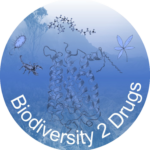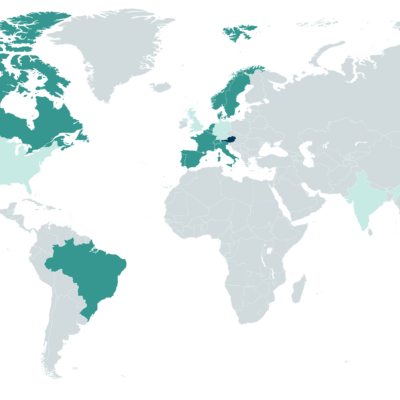
Biodiversity2drugs – Peptide Biodiversity: Advancing Human Health Through Nature’s Pharmacological Treasures
Call
Duration
01/04/2025 – 31/03/2028
Total grant
Approx. 3.2 mil. €
More information
Christian Gruber,
christian.w.gruber@meduniwien.ac.at
Partners of the project
- Center for Physiology and Pharmacology, Medical University of Vienna, Vienna, Austria
- Department of Medicines and Technologies for Health, CEA Paris-Saclay, Paris, France
- Department of Biology, KU Leuven, Leuven, Belgium
- Centre for Ecological and Evolutionary Synthesis, Department of Biosciences, The University of Oslo, Oslo, Norway
- Department of Chemistry & Pharmaceutical Sciences, VU Amsterdam, Amsterdam, Netherlands
- Department of Toxicology and Pharmacology, KU Leuven, Leuven, Belgium
- Department of Organic Chemistry, Sao Paulo State University, Araraquara, Brazil
- Department of Chemistry, University of Montreal, Montreal, Canada
- Department of Drug Design and Pharmacology, University of Copenhagen, Copenhagen, Denmark
- Department of Biology and Evolution of Marine Organisms, Zoological Station, Anton Dohrn, Naples, Italy
- Department of Chemistry and Biochemistry, University of Porto, Porto, Portugal
- Biomedical Informatics Unit, Hospital del Mar, Research Institute, Barcelona, Spain
- Department of Cell and Molecular Biology, Uppsala University, Uppsala, Sweden
- Department of Pharmaceutical Biosciences, Uppsala University, Uppsala, Sweden
- Institute of Chemical Sciences and Engineering
- Swiss Federal Technology Institute of Lausanne, Lausanne, Switzerland

Context
The Biodiversity2Drugs (B2D) consortium investigates how the incredible diversity of life on Earth can inspire groundbreaking medical innovations. By studying peptides (small proteins for instance produced by microbes, plants and insects or by venomous animals e.g. cone snails, snakes and spiders) the project seeks to harness the evolutionary sophistication of nature to develop safer, more effective medicines. These peptides interact with G protein-coupled receptors (GPCRs), a vital class of drug targets that regulate many physiological processes. In addition to advancing medical science, the B2D project underscores the urgent need to protect biodiversity, as its loss threatens the discovery of life-saving molecules. By combining cutting-edge research with a commitment to conservation, B2D promotes a healthier planet and a healthier future for all.
Main objectives
- Drug discovery from nature: transform natural peptides into safe, targeted drugs that minimize side effects, addressing urgent healthcare challenges;
- Decoding GPCR functionality: enhance our understanding of GPCRs to design medicines with greater precision and effectiveness;
- Biodiversity conservation: highlight the critical importance of preserving biodiversity as a reservoir for scientific discovery and societal benefit.
Main activities
- Uncovering nature’s pharmacy: researchers use advanced techniques like genomics, peptidomics, and AI tools to discover bioactive peptides from plants and animals, unlocking their therapeutic potential;
- Exploring molecular interactions: by studying how natural peptides interact with GPCRs, the project identifies molecules with highly selective and beneficial effects, paving the way for safer drugs;
- Advancing drug development: promising peptide candidates undergo rigorous preclinical testing to validate their potential as innovative treatments;
- Collaborative action for biodiversity: Through a global network of scientists, policymakers, and stakeholders, B2D fosters sustainable research practices and raises awareness of biodiversity’s role in solving pressing health and environmental challenges.

